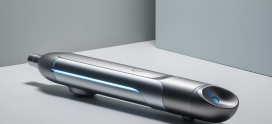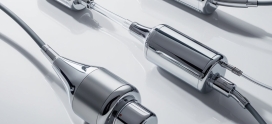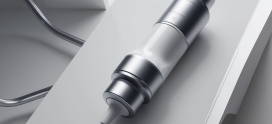
Collplant Develops First Prototypes For Regenerative 3D Bioprinted Breast Implants
CollPlant, an Israeli 3D bioprinting and regenerative medicine firm, has announced that it is developing implants for breast tissue regeneration. After conducting early development, the company has successfully produced the first prototypes. It believes that these 3D bioprinted breast implants could have the potential to provide a safer alternative to the standard methods of permanent breast implantation.
“The implants we are developing leverage our 3D bioprinting technology and the unique properties of our recombinant human collagen, that has an excellent safety profile,” stated CollPlant CEO, Yehiel Tal.
[mpc_quote]
“WE BELIEVE THAT OUR TECHNOLOGY CAN ELIMINATE THE HIGH RISK FOR ADVERSE EVENTS ASSOCIATED WITH PERMANENT BREAST IMPLANTS AND PROVIDE A REVOLUTIONARY ALTERNATIVE. THIS TECHNOLOGY IS ALREADY RAISING INTEREST FROM LEADING COMPANIES IN THIS SEGMENT.”
[/mpc_quote]
An animation showing precollagen fibers inside a single tobacco cell, to be extracted. Image via CollPlant.
Promoting natural tissue growth using 3D bioprinting breast implants
The bioprinted breast implants are comprised of CollPlant’s own proprietary type I “recombinant human” collagen-based bioink called rhCollagen, as well as additional materials. CollPlant has invested significant research into developing its rhCollagen technology, which involves bioengineering plants to produce it. RhCollagen is grown and harvested from tobacco plants engineered with five human genes, which have been growing for eight weeks. The leaves are processed and refined until purified rhCollagen can be extracted. This purified collagen is then used as a foundation when 3D bioprinting solid-organ scaffolds.
CollPlant has designed the 3D Bioprinted breast implants so that the bioprinted scaffolds degrade over time, however. The company intends for natural breast tissue to grow in its place, which it claims will be “free from any of the foreign material.” In order to promote the regenerative process, CollPlant has loaded the breast implants with fat cells that are obtained from the patient in question.

Graphic demonstration of 3D bioprinting with rhCollagen bio-ink. Image via CollPlant.
The rhCollagen bioink from CollPlant
In 2017, CollPlant established an entire division dedicated to the development of its rhCollagen bioink for 3D printing, which the company had been researching for several years. CollPlant had previously received a grant for its rhCollagen research from Israel’s Ministry of Economy in 2016.
CollPlant also received a $5 million investment from US venture capital firm Alpha Capital in September 2017, allowing the company to progress further with its long-term rhCollagen project. Yehiel Tal previously hinted at significant developments for CollPlant’s rhCollagen technology, stating “our unique tissue repair technology may represent a potential paradigm shift in the field of regenerative medicine, and we look forward to raising CollPlant’s profile.”
Since then, the regenerative medicine firm has entered into a license, development and commercialization agreement with United Therapeutics Corporation, a Maryland-based biotechnology company. Under the agreement, United Therapeutics is using CollPlant’s rhCollagen bioink technology to develop 3D bioprinted lungs for transplant in humans.
Featured image shows graphic demonstration of 3D bioprinting with rhCollagen bio-ink. Image via CollPlant.
source: https://3dprintingindustry.com/











